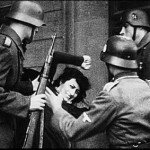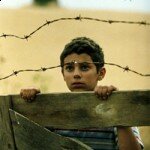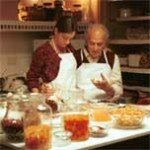Italy is a country rich in history and culture and is largely represented to international audiences through the medium of film. To be studying a country through various films as I currently am is a very interesting concept, and what better way is there to share this with you than through my understandings of what these films represent? Over the next few months you will see analytical reviews on some of Italy’s most revered and obscure films and what they mean in representing their homeland. We start with Luchino Visconti’s 1963 epic, Il Gattopardo (The Leopard).
Visconti’s most famous film, winner of the 1963 Palme d’Or, is Italy’s answer to Gone with the Wind, a sweeping epic set in 1860 at the time of Italy’s unification. It tells the story of noble Prince Fabrizio (Burt Lancaster) and the Salina family; republican rulers in Sicily, and their struggles during the Garibaldi-led war. This time was very important to Italy as there were stark differences between the North and South of the country, and the States were in need of strong leadership. To this day there is still a divide between the prosperous traders of the North and the farmers/peasants of the South, and the resulting class divide is shown between the nobles and middle-class in The Leopard. The film details the rise of the middle-class through corruption, and we see this through Don Calogero (Paolo Stoppa). He handles the Prince’s money and affairs, and the burgeoning romance between his daughter Angelica (Claudia Cardinale) and the Prince’s nephew Tancredi (Alain Delon) will eventually assure him a prominent and safe standing.
For things to remain the same, everything must change.
 |
The Prince is not immune to what is happening; on the contrary he understands the inevitability of the situation enormously. Burt Lancaster gives an absolute powerhouse performance of a man who knows he’s becoming irrelevant in a revolutionary society. He turns down an offer in the new Senate because his views are of the old era and wouldn’t serve the new society well, and so instead strives to see that his nephew will follow his ambitions and become an important figure in the new order. All the same, the Prince tries to keep his family together – there is still an obvious fear of change, and so the family holiday to Donnafugata goes ahead despite battles and the like. While he has no choice but to accept the change reluctantly, his daughter Concetta (Lucilla Morlacchi) is determined to uphold what was even when it can longer be. Sicilians were even then known as thinking themselves perfect!
We were the leopards, the lions, those who take our place will be jackals and sheep, and the whole lot of us – leopards, lions, jackals and sheep – will continue to think ourselves the salt of the earth.
Visconti was open about his Marxist views and capitalised on this with The Leopard, as Sicily was (and still is) a contested place. A key trading port and its strategic positioning was still relevant in 1963, 100 years after the setting, where Italy was in the midst of a late capitalist economy and consumerism was on the rise. While based on Giuseppe Tomasi Di Lampedusa’s book, The Leopard as a film gave Visconti the freedom to show audiences the nobles’ lavish lifestyle. As a director who insisted on maximising the mise-en-scene in every shot, the repeated motifs of mirrors and death are particularly notable (reflections of themselves? It is a contemplative film…), and no detail is lost through the ball scenes, comprising the last third of the film. Yes, that’s right, 45 minutes worth! Characters pose riddles and questions at every turn as their standing is compromised, but it’s the Prince that is affected the most, and it will move you.
 |
The lavish setting may fool you, but The Leopard is anything but fluff. Everything in Visconti’s film is deliberately done to make you understand exactly what’s happening, regardless of your historical knowledge. Tancredi’s quote about change forms the crux of the film early on and the audience is made to think about class divides among the battles and the romance. That is what The Leopard serves up; it is epic on all counts, with romance and heartbreak among the politically charged content. How Italy’s unification affected this family is only one example, but it shaped the country, with many effects still felt today. Non-Italians viewing the film almost 50 years later proves its longevity as a masterpiece in cinema, not to mention supposedly one of the best book-to-film adaptations, and learning from it shows its relevance in teaching about not just history but the resulting society.
Just a warning: do NOT watch the American version! With badly dubbed English and over 20 (important) minutes cut, the best remaining version is the Italian 187m (the original 205m edit has never gained a wide release).
 Follow the author Katina Vangopoulos on Twitter.
Follow the author Katina Vangopoulos on Twitter.















![The Three Musketeers [2011] (Review)](/wp-content/uploads/the-three-musketeers-21-e1319607229980-150x150.jpg)